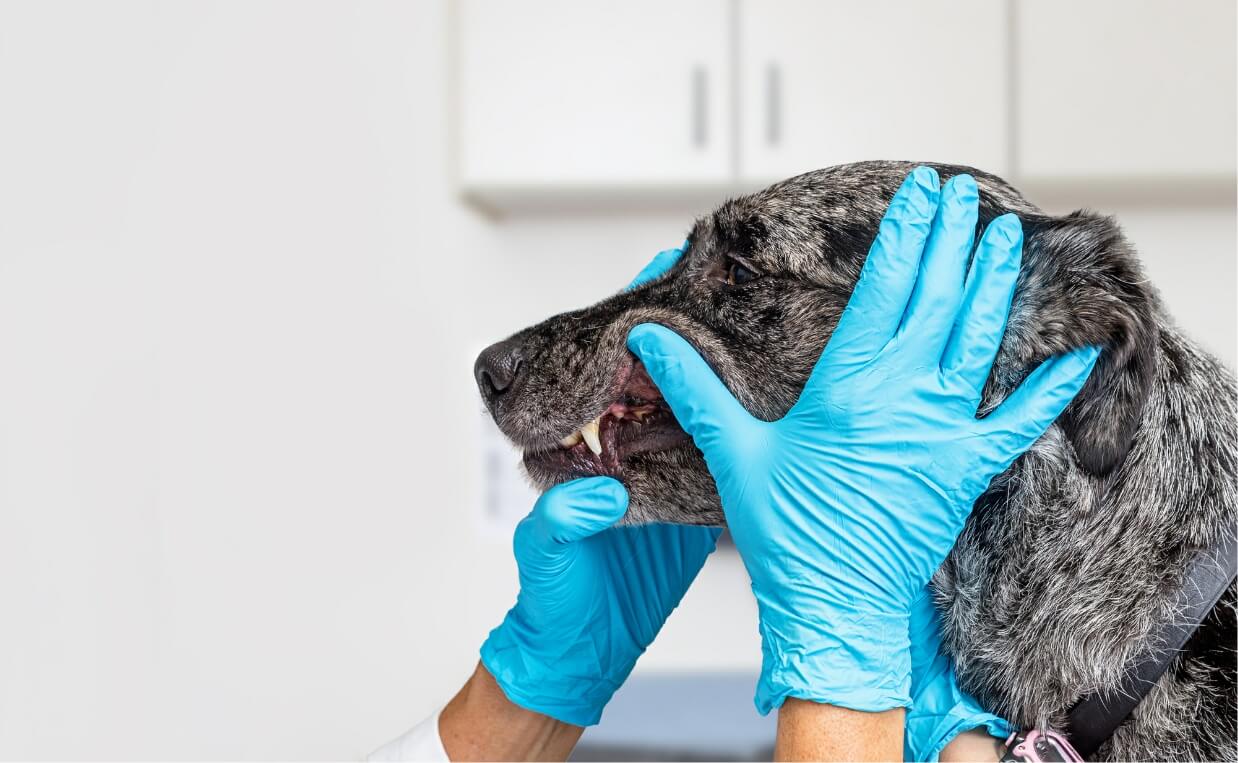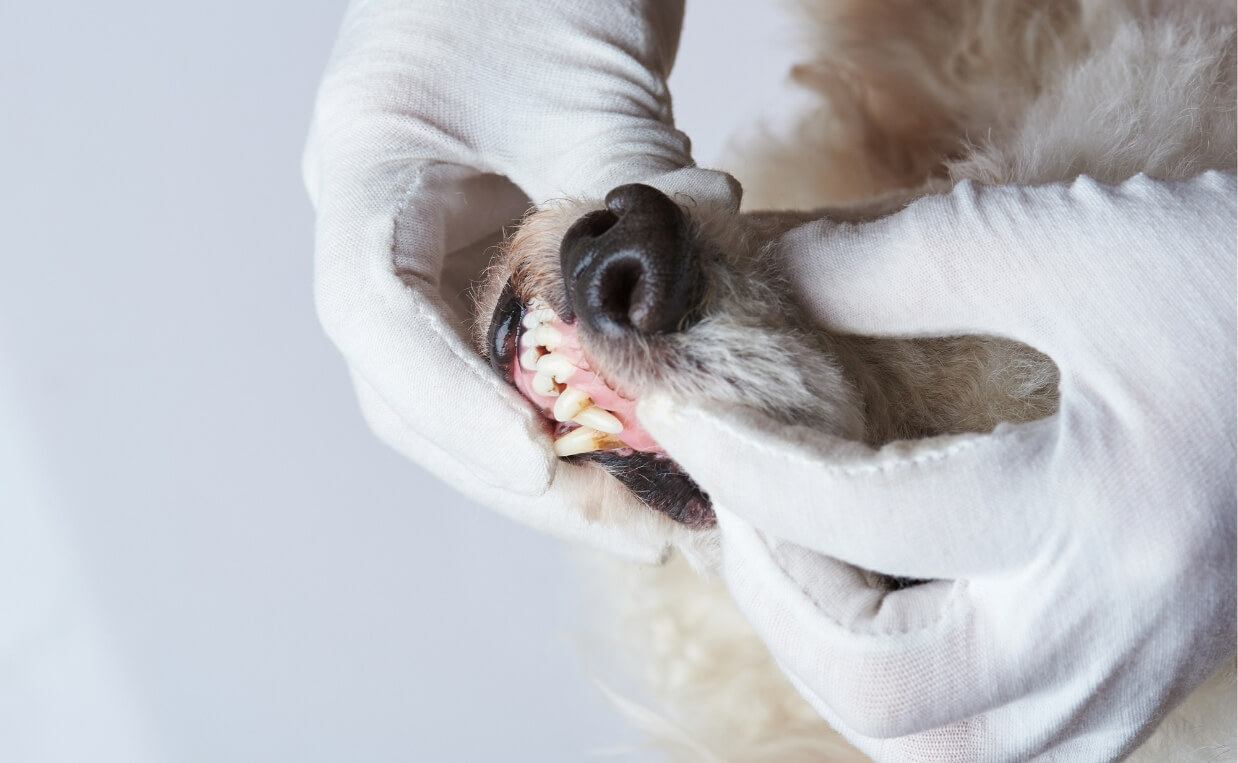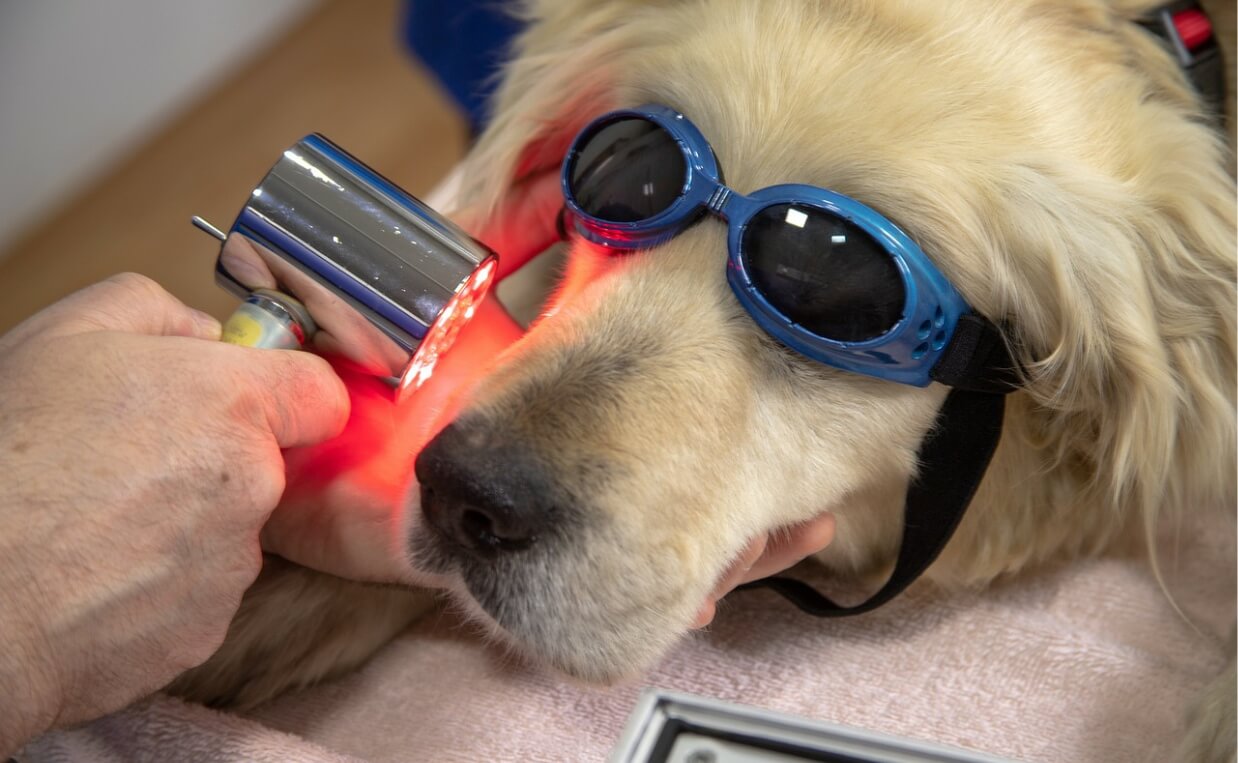
Dog dental care is an important aspect of your dog’s overall health, but most dogs don’t receive the oral hygiene care they need.
What Is Dog Dental Disease?
Dog dental disease includes gingivitis and periodontitis. Canine periodontal disease is infection and inflammation in your dog’s gums, bones, and teeth. Plaque accumulates and tartar builds up, causing bacteria and infection. Periodontal disease leads to teeth loss as well as some more serious and unexpected health conditions. It is one of the most common diseases affecting dogs, with a reported prevalence of at least 80 percent of dogs over 3 years of age.
There are five serious consequences of failing to care for your dog’s teeth.
-
Diabetes
Diabetes is linked to a higher level of periodontal disease. This is because the two conditions fuel each other, creating a vicious cycle. Inflammation and infection associated with periodontal disease can affect blood sugar. Usually, after the dental disease is treated, diabetes is easier to manage.

-
Pain
Dental disease can be very painful in dogs but can remain hidden. Your dog could be suffering from a broken tooth, tooth decay, gum disease or an abscess in their mouth or throat. A few signs to watch for include:
- “Inhaling” food instead of chewing it
- Lack of appetite
- Swelling or bleeding in the mouth
- Drooling
- Halitosis, or bad breath
-
Broken jaw
If even one tooth becomes infected in a dog, it can lead to severe consequences such as a fractured jaw. This is often due to periodontal disease which can cause a weakened jaw due to the lack of quality bone left in the area. Broken jaws are common in smaller dogs with larger teeth, like a Chihuahua, Lhasa Apso, Maltese, or Shih Tzu.

-
Inflammation
If there’s too much plaque in a dog’s mouth, it can lead to periodontal disease under the gums. This can create severe inflammation and an immune response to try to kill the bacteria, which can kill tissue in the process. Too much inflammation can lead to bacteria entering the bloodstream.
-
Risk of heart disease
Inflammation caused by canine dental disease affects both the heart and the liver. This has been linked to endocarditis, a heart valve infection in dogs. Usually, if your dog is showing signs of dental disease, they may be experiencing heart disease at the same time.
How to Prevent Dog Dental Disease
Dog dental disease can be prevented with a few simple, routine care measures.
-
Vaccinate your dog
There is a vaccination available for your dog to help avoid destruction caused by canine periodontitis. The Porphyromonas vaccine works to reduce the risk of bone changes caused by dental disease. While it may not prevent periodontal disease, the vaccine can significantly reduce the damage done to the teeth, gums and the risk of further complications. Be sure to ask your veterinarian about this vaccine the next time you take your dog in for a wellness check or dental care appointment.

-
Regular cleaning
Regularly brushing your dog’s teeth is an important way to prevent dental disease. Brushing your dog’s teeth reduces the risk of too much plaque and tartar building up on their teeth. This reduces the risk of inflammation. There are toothbrushes and toothpaste made specifically for dogs, as well as great bones and dental treats. Read more: 5 Easy Steps to Brush your Dog’s Teeth
-
Oral dental examinations
The best way to lower the risk of periodontal disease in your dog is to take him or her in for regular teeth cleaning and dental examinations. Veterinarians, groomers and canine dental technicians are experts at recognizing dental issues. Routine plaque removal is a very effective preventative practice.
Why Are Regular Dental Exams So Important?
Preventative care can avoid unnecessary pain and illness for your beloved pooch. Also, your veterinarian will be able to identify periodontal disease early, which can mean your dog will avoid potentially more painful and expensive health issues. They can also lessen the need for extractions.

Dental health care is essential for dogs. Our professional groomer, Chris, offers expert teeth brushing as a standalone service or combined with other grooming needs. Contact us at 719-448-9600 to learn more about our teeth brushing and other grooming services.

 How Many Chromosomes Do Dogs Have and What They Mean
How Many Chromosomes Do Dogs Have and What They Mean What You Need to Know About Pain Medication for Dogs
What You Need to Know About Pain Medication for Dogs 16 Tips to Keep Your Dog Safe and Comfortable During Winter Weather
16 Tips to Keep Your Dog Safe and Comfortable During Winter Weather 5 Reasons Your Dog Has Bad Breath
5 Reasons Your Dog Has Bad Breath What Every Dog Owner Should Know About Skin Lumps and Bumps in Dogs
What Every Dog Owner Should Know About Skin Lumps and Bumps in Dogs






As a dog owner, I appreciate the reminder that dental care and vaccinations are essential for my furry friend’s well-being.